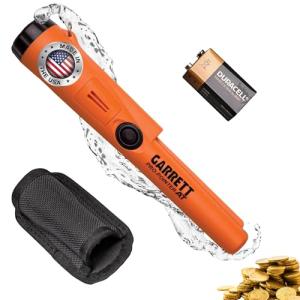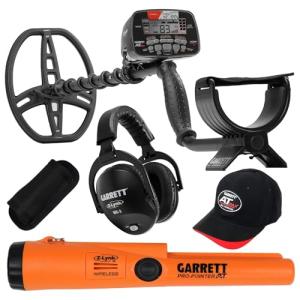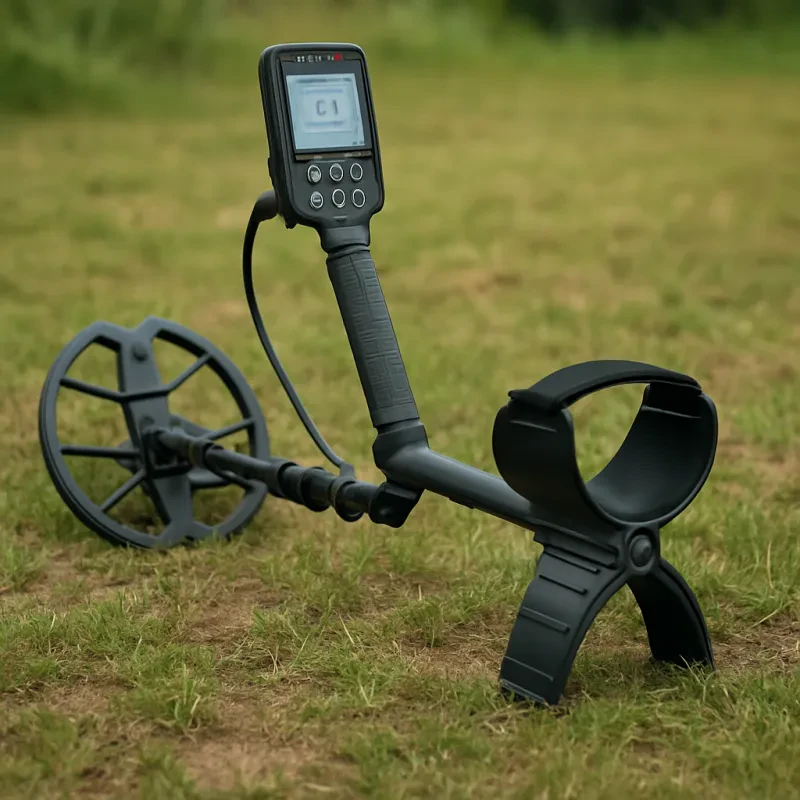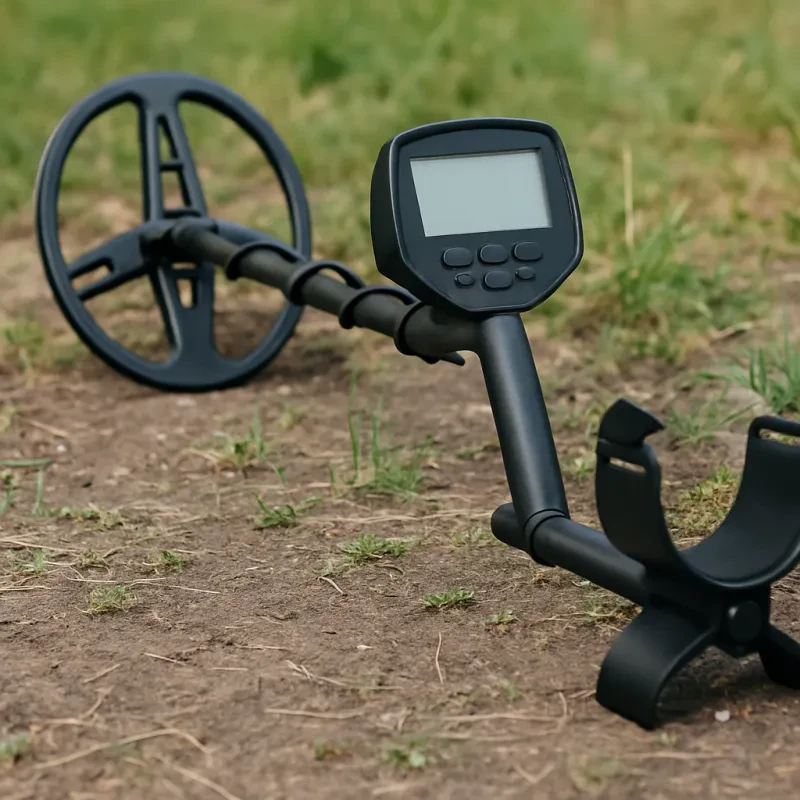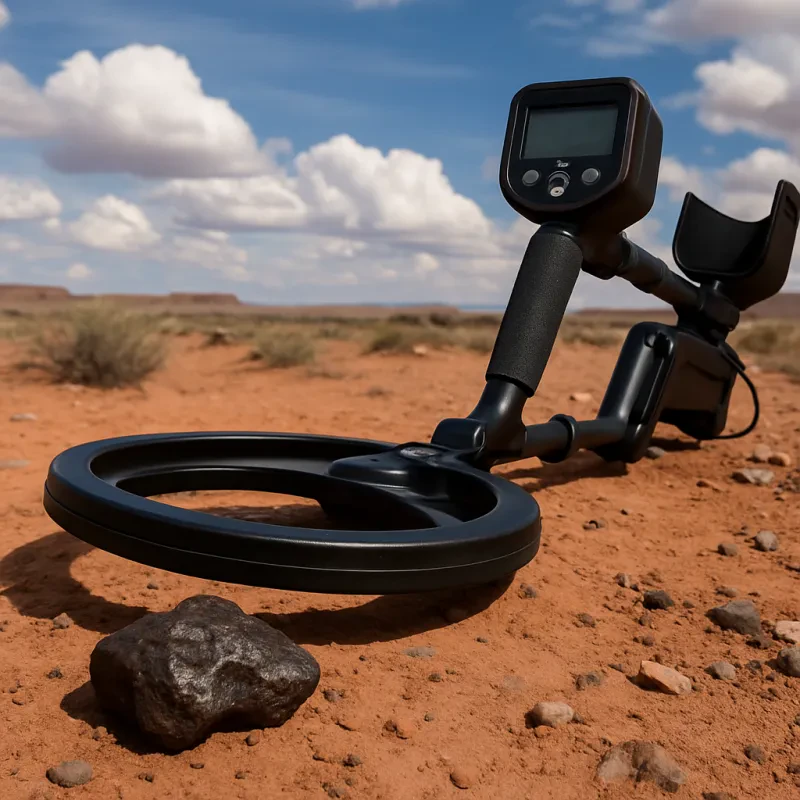€93.17
4.19 out of 5 starsGarrett Pro-Pointer AT: Waterproof Pinpointer
Unleash your treasure hunting potential with the waterproof Garrett Pro-Pointer AT Detector
Product information
Product Review Score
Product links
Metal detecting is a fascinating hobby that combines outdoor adventure with the thrill of discovery. While traditional metal detecting involves the use of a full-sized metal detector, some enthusiasts opt for a more minimalist approach by using just a pinpointer. This article explores the pros and cons of metal detecting with just a pinpointer, offering insights into this unique approach to treasure hunting.
Pros of Metal Detecting with a Pinpointer
Portability and Ease of Use
One of the most significant advantages of using a pinpointer for metal detecting is its portability. Pinpointers are small, lightweight, and easy to carry, making them ideal for spontaneous treasure hunting sessions or when traveling to remote locations. Their compact size also allows for easy maneuverability in tight spaces where a full-sized metal detector might be cumbersome.
Precision in Target Recovery
Pinpointers excel in their ability to help users locate targets with great precision. Once a general area is identified as having potential metal content, a pinpointer can narrow down the exact location, reducing the time and effort needed to dig and recover the target. This precision is especially useful in areas with a high concentration of metal debris, where distinguishing between valuable finds and trash is crucial.
Cost-Effective for Beginners
For those new to metal detecting, the investment in a full-sized metal detector might seem daunting. Pinpointers, being significantly less expensive, offer a cost-effective entry point into the hobby. They provide beginners with a hands-on feel for metal detecting without the initial financial commitment required for more advanced equipment.
Complementary to Scuba Diving and Snorkeling
Pinpointers are not just for land-based treasure hunting; they are also an excellent tool for underwater explorations. Waterproof models can be used by scuba divers and snorkelers to locate submerged items in shallow waters, where traditional metal detectors might be impractical to use.
Cons for using a Pinpointer for Metal Detecting
Limited Detection Range
The most notable drawback of using just a pinpointer for metal detecting is its limited detection range. Pinpointers are designed to locate metal objects at close range, usually within a few inches. This limitation means that users must be very close to a target for the pinpointer to detect it, which can be challenging in large areas or when the exact location of potential finds is unknown.
Increased Time and Effort
Due to their limited range, pinpointers require users to scan the ground more meticulously compared to a full-sized metal detector. This process can be time-consuming and physically demanding, as it involves a lot of bending, kneeling, or crawling, especially in rugged terrain.
Missed Discoveries
The restricted detection range of pinpointers also increases the likelihood of overlooking deeper or more subtly located items. Valuable finds that lie just beyond the reach of a pinpointer's detection capabilities might be missed, which could be frustrating for serious hobbyists aiming to uncover hidden treasures.
Limited Functionality
While pinpointers are excellent for locating and retrieving targets with precision, they lack the advanced features and settings available on full-sized metal detectors, such as discrimination settings, depth indicators, and ground balance controls. These limitations can affect the efficiency and effectiveness of a treasure hunting session, especially in areas with complex ground conditions or high levels of mineralization.
Metal detecting with just a pinpointer presents a unique set of advantages and challenges. Its portability, ease of use, and precision in target recovery make it an appealing option for casual treasure hunters, beginners, and those exploring areas where a full-sized detector is impractical. However, its limited detection range, potential for increased time and effort, likelihood of missed discoveries, and limited functionality highlight the compromises involved in choosing this minimalist approach.
Ultimately, whether using just a pinpointer for metal detecting is suitable depends on the individual's goals, preferences, and the specific circumstances of their treasure hunting adventures. For some, the thrill of discovery with such a compact tool will outweigh the limitations, while others may prefer the broader capabilities of a full-sized metal detector. In either case, metal detecting remains a rewarding hobby that offers the excitement of unearthing hidden treasures and the joy of connecting with history and nature.
€703.88
4.68 out of 5 starsGarrett AT MAX Pin Pointer Metal Detector
Experience the ultimate precision in metal detection with the technologically advanced Garrett AT MAX Pin Pointer Metal Detector
Product information
Product Review Score
Product links

